We travel from the 4,000 Islands in Laos to Siem Reap, Cambodia, the town nearest to Angkor Wat.
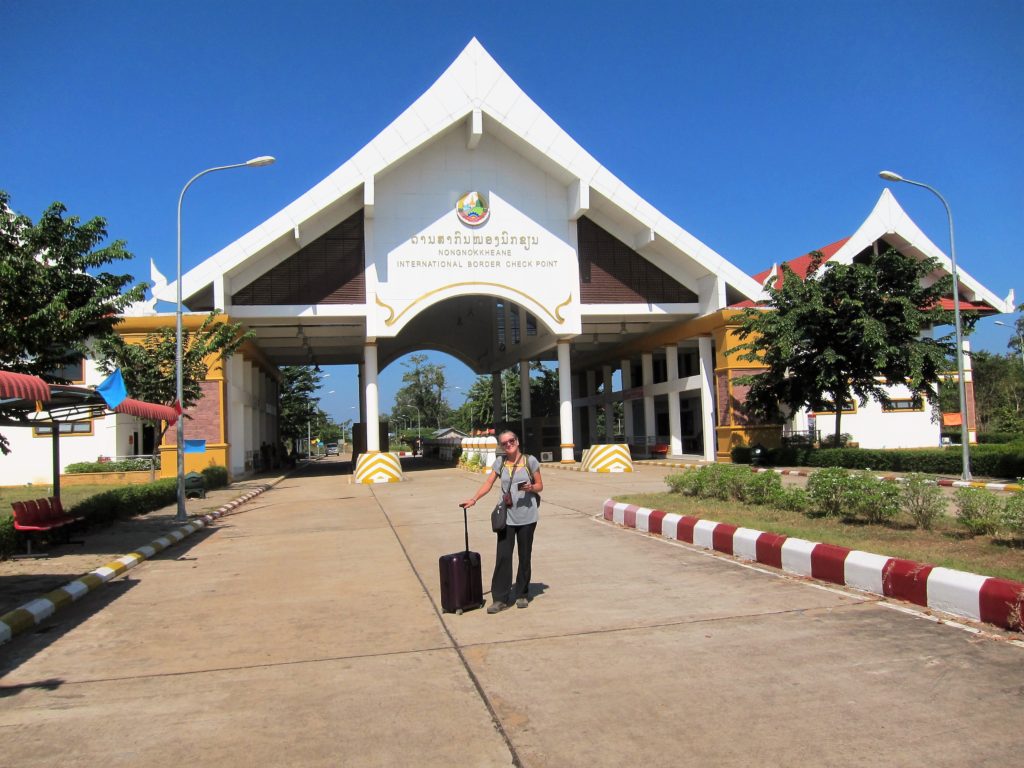
We cross the No-man’s-land between the two.
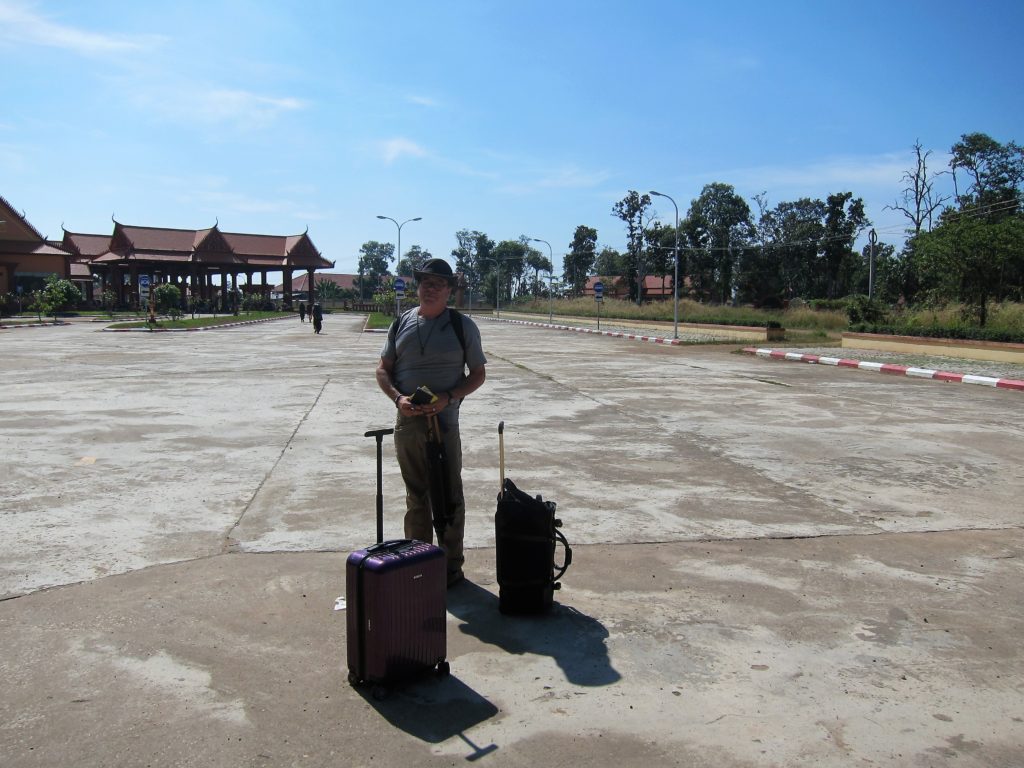
Cambodia uses the US dollar as its currency. Quelle surprise! Even though there is such a thing as a Cambodian Riel, it takes 4,000 of them to make a US buck. Even the ATMs only dispense crisp new greenbacks.
Angkor Wat. I’ve wanted to come here ever since reading about it in Volume 1 of Will Durant’s The Story of Civilization as a youth.
We rented E-scooters again. Angkor Wat is about 8 KMs from Siem Reap. Our first stop was a site called Banteay Kdei. It was in small letters on the map, signifying a minor site, of lesser importance.
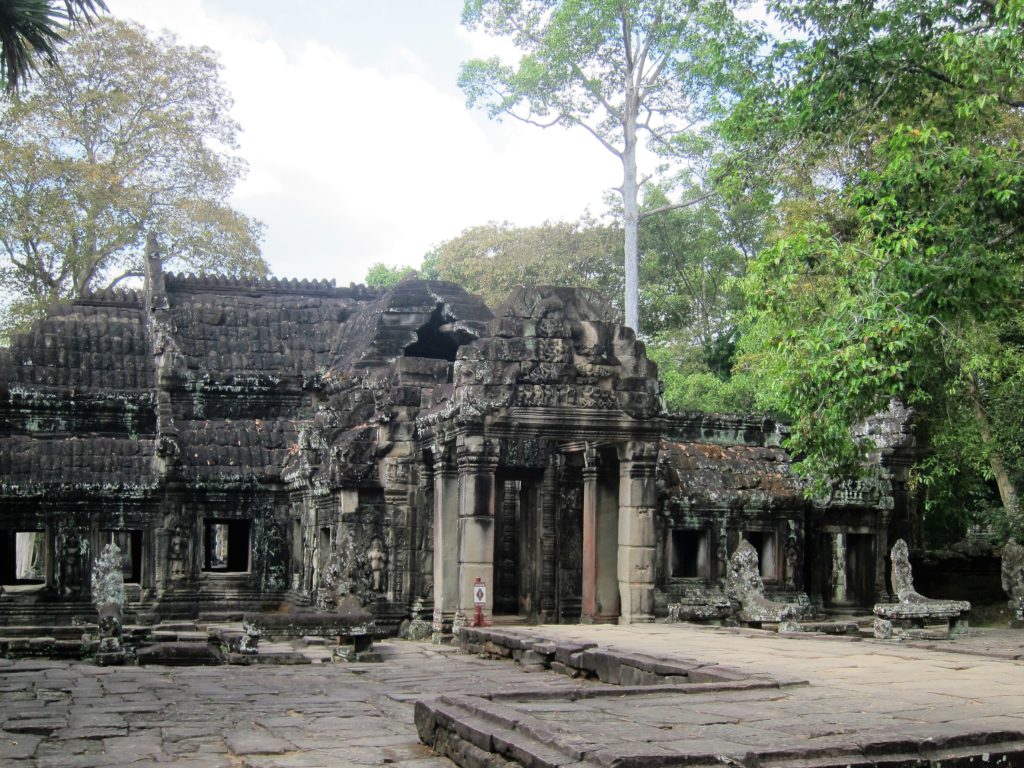
It didn’t seem very minor to us. It’s like a poem in stone. Unbelievable skill went into building this – and every other site here. There is fine, fine stone carving on every surface. Even the roofs are made of stone. On one of its axes is this magnificent artificial lake.
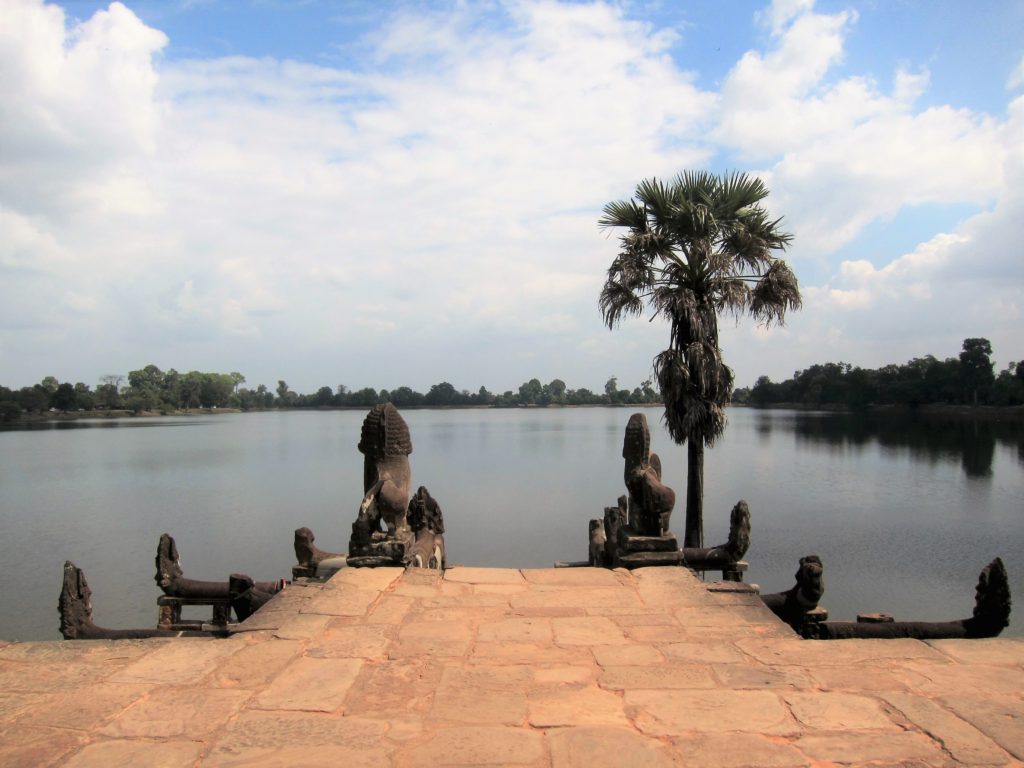
After an hour or so of ‘oohing’ and ‘aahing’, we move on to Pre Rup.
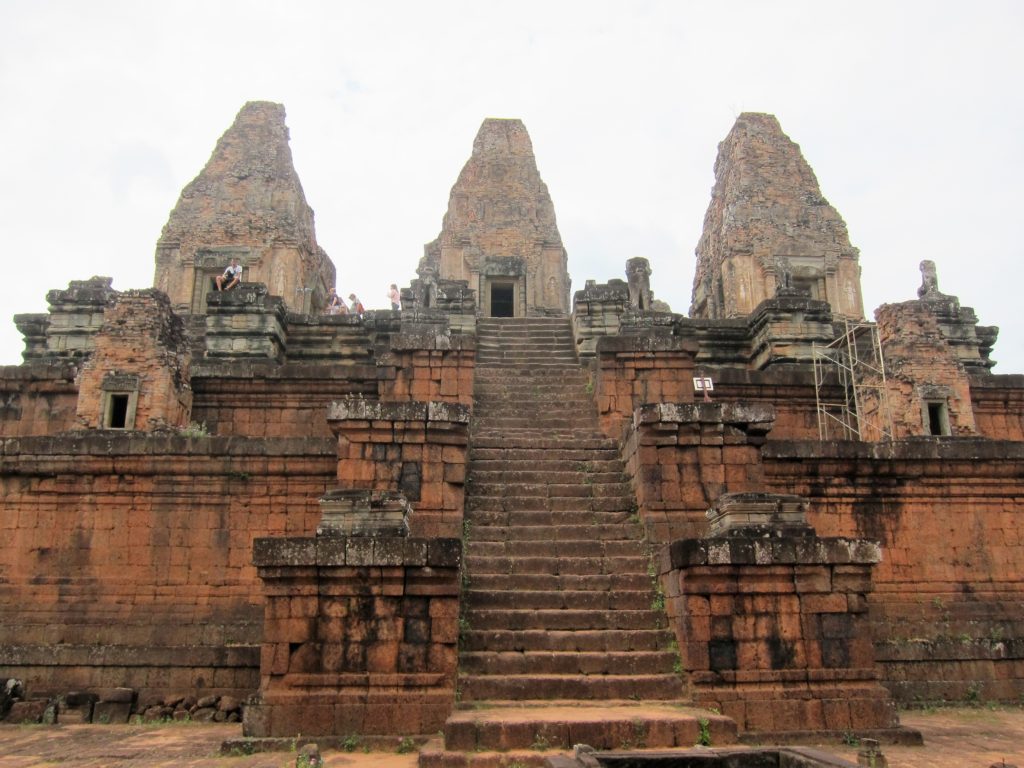
This is a temple made largely of brick. A multinational film crew is making some kind of documentary while we’re here, including drone shots.
After a healthy climb, we get this view.
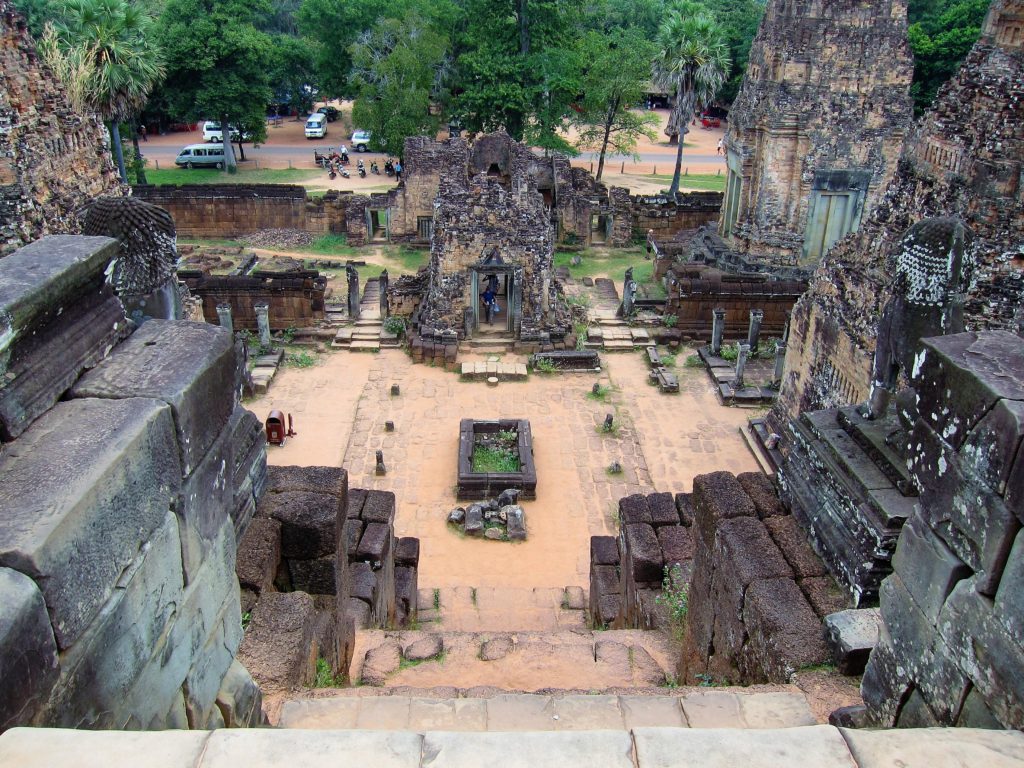
Almost all the sites here have multiple stone lions as guardians.
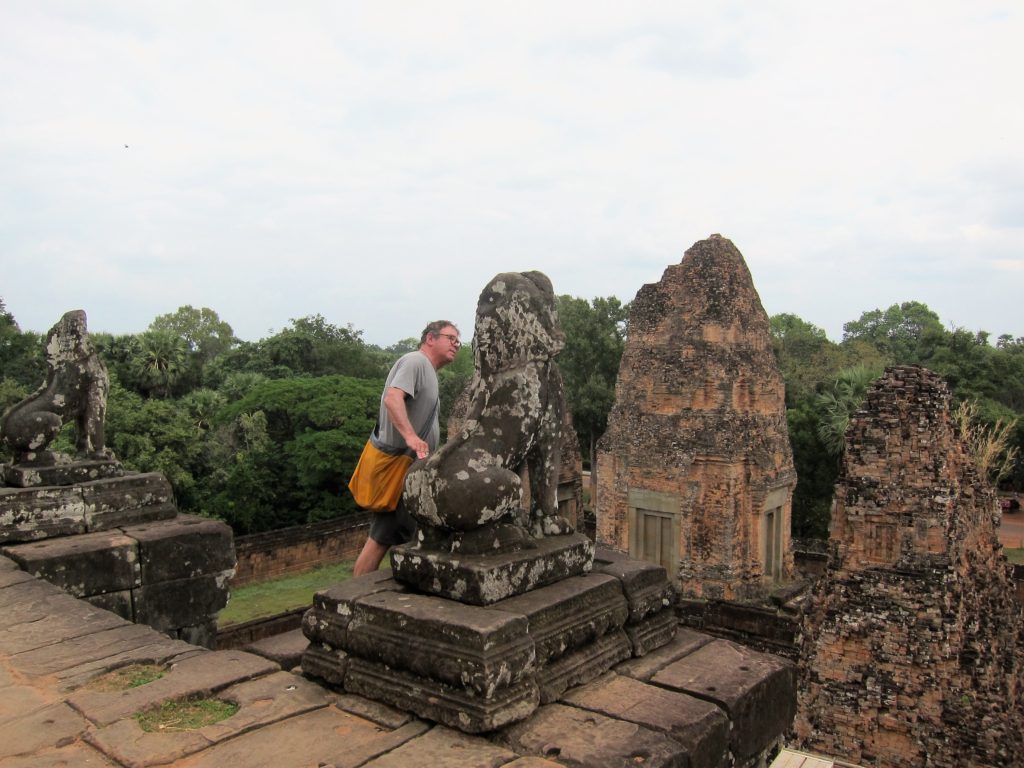
On the road to the next stop. These E-scooters are a blast to ride.
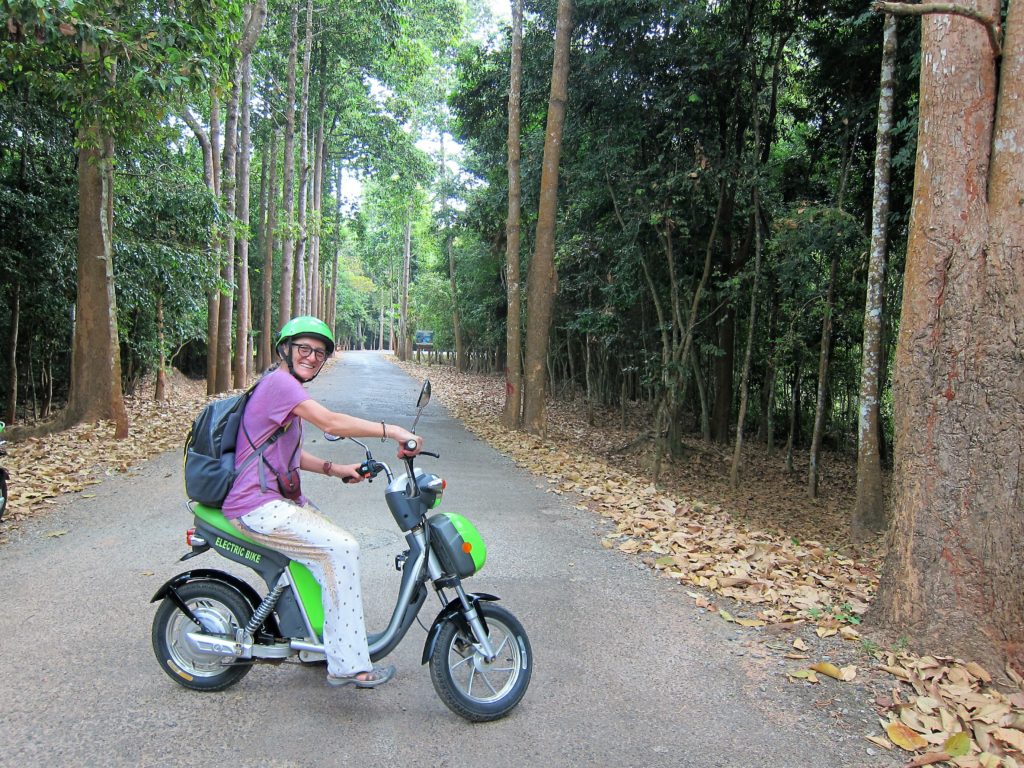
We pass a baby water buffalo that doesn’t want to get out of the (mud) bath.
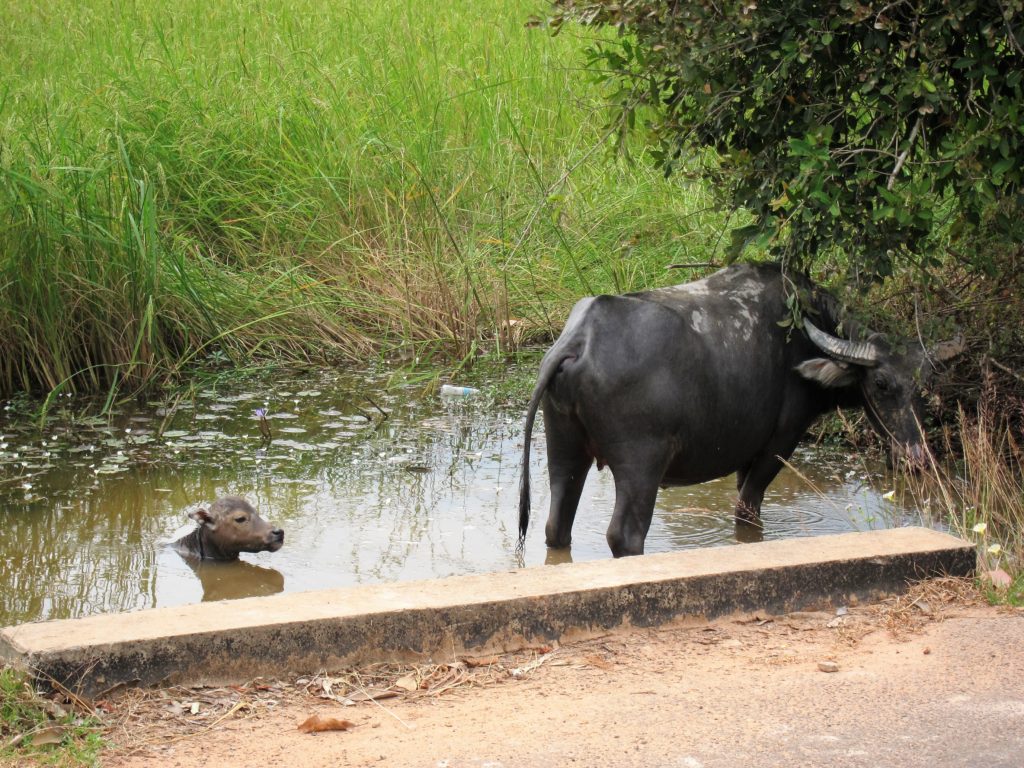
Next stop, Neak Prean.
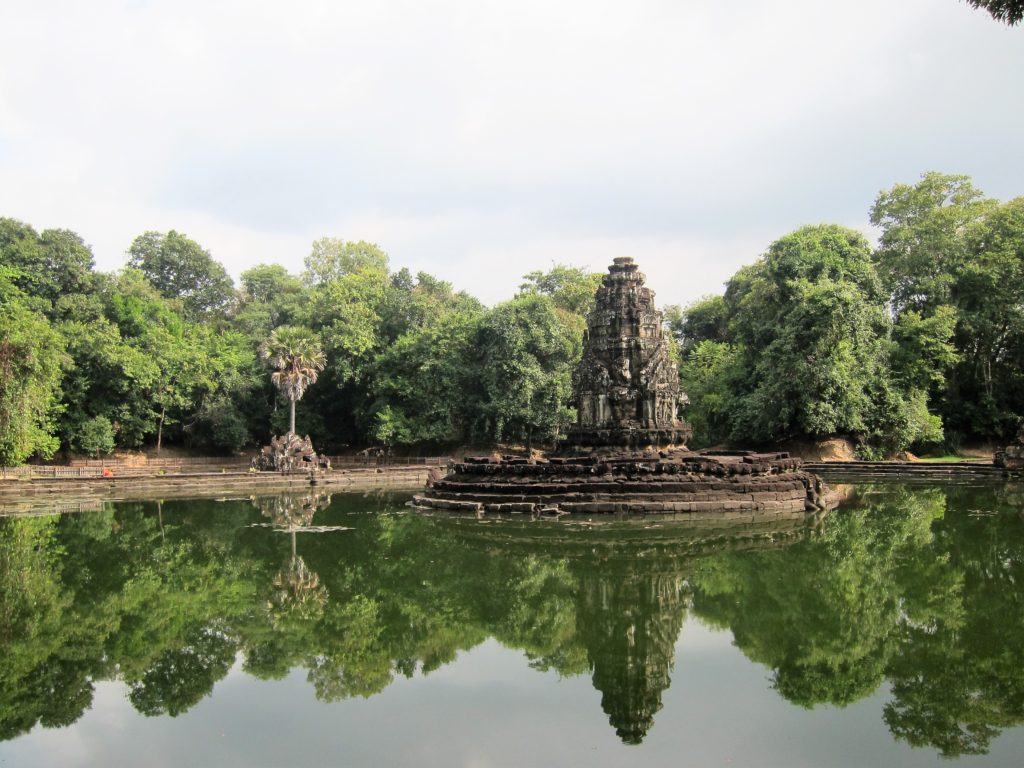
Dates from the 12th century. What was going on in Europe in the 12th century? Quite a lot, in fact.
After lunch and a charge-up of the bikes, we arrive at Preah Khan.
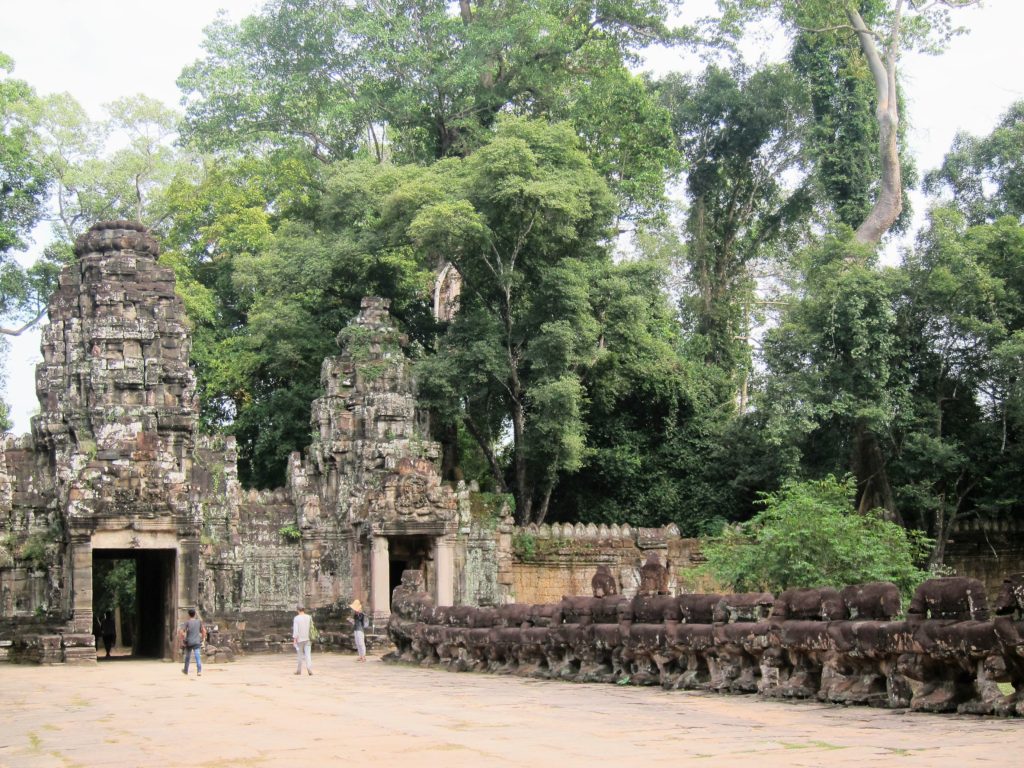
We love these trees that take over the ruins.
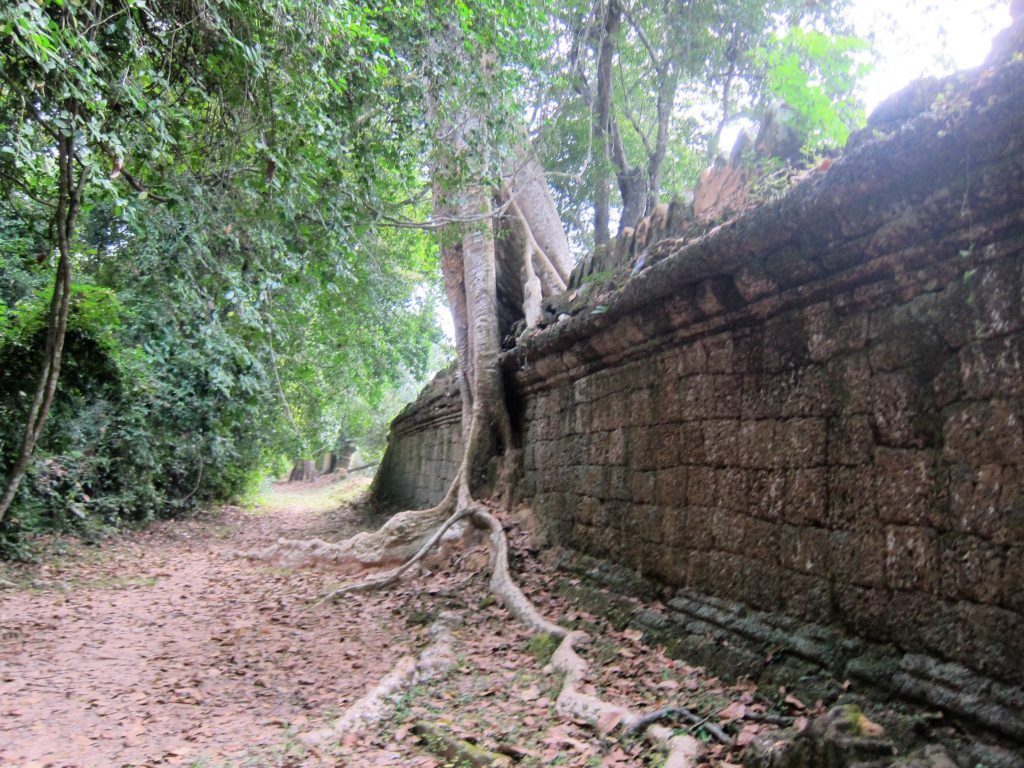
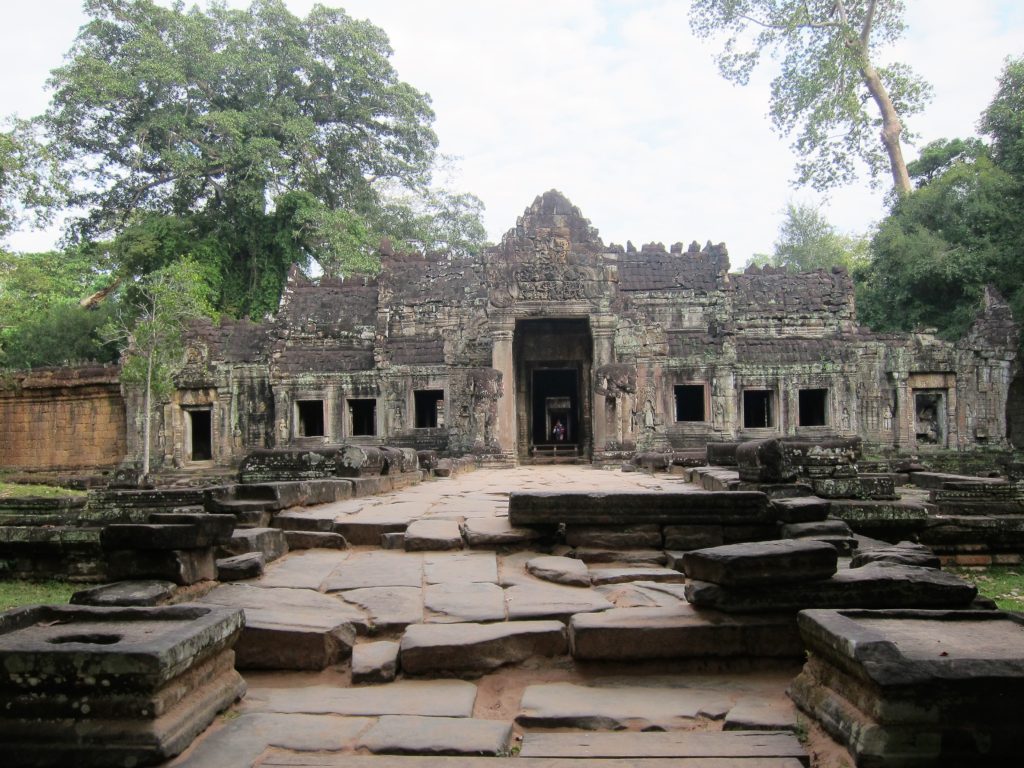
Maria consults our guide book.
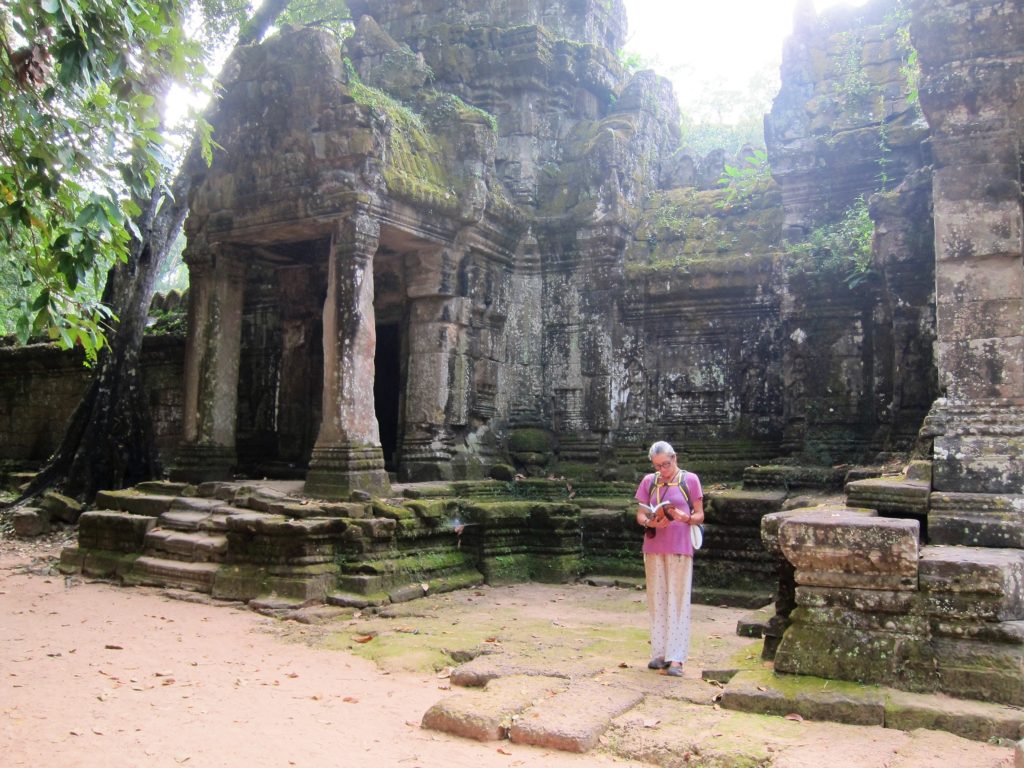
The 2 axes of the building meet in the middle. Looking down the corridors gives a hall-of-mirrors effect in every direction.
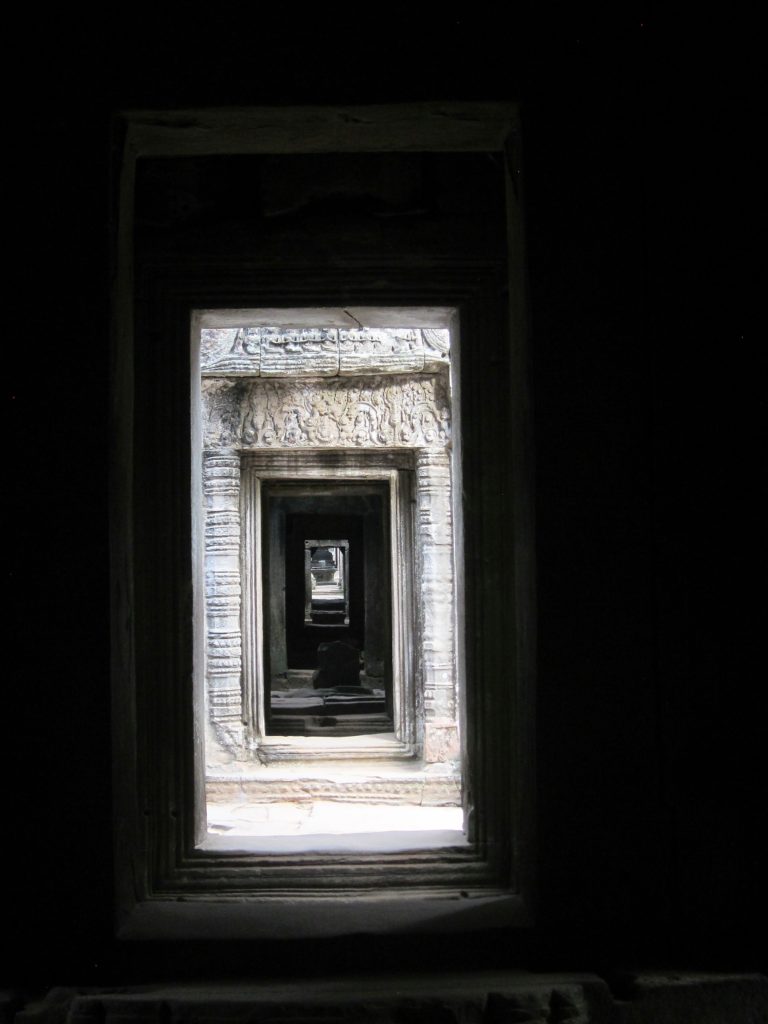
More buildings.
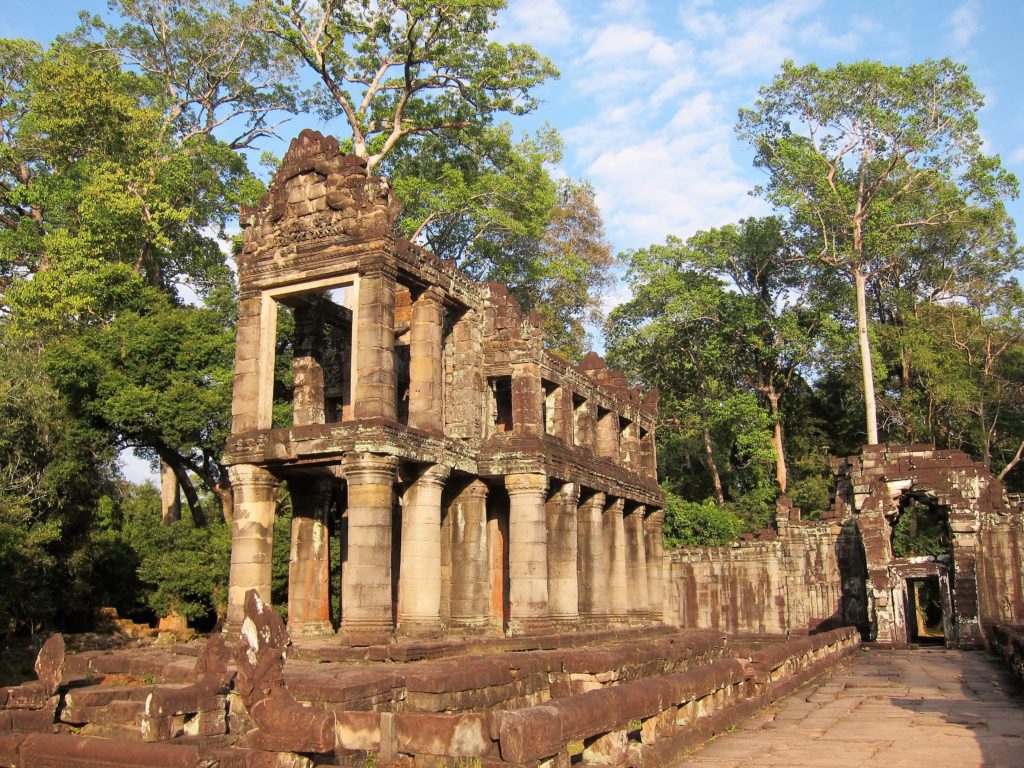
The roofs are impossible-looking arches of stone
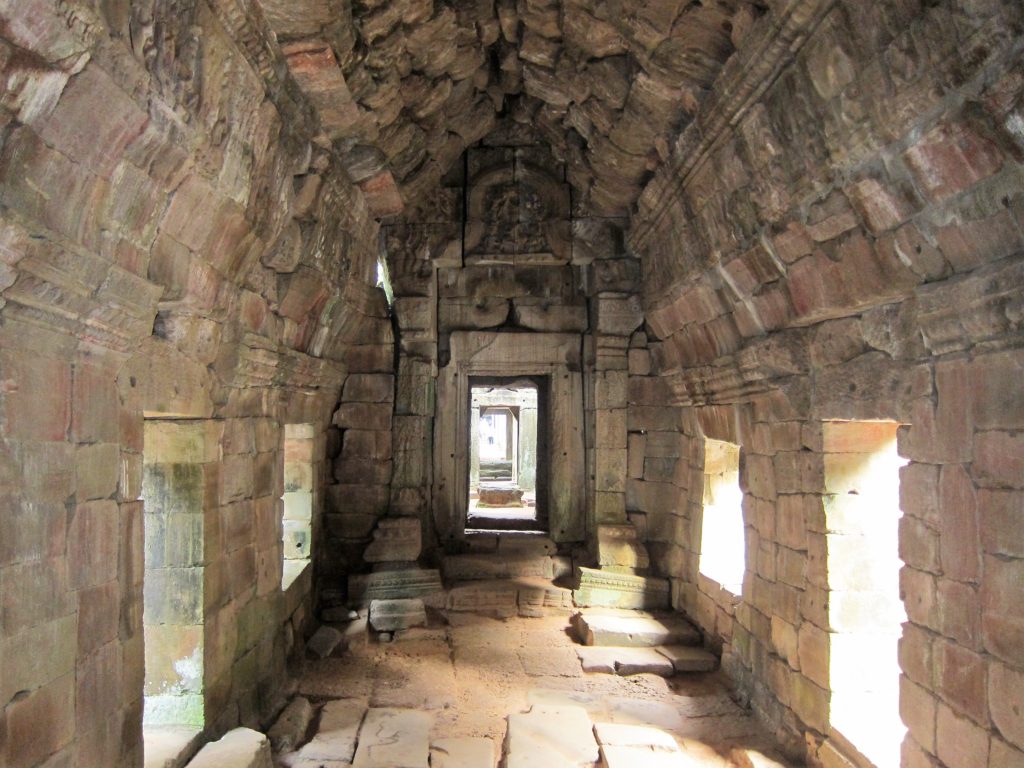
We try to imagine what this looked like in its heyday.
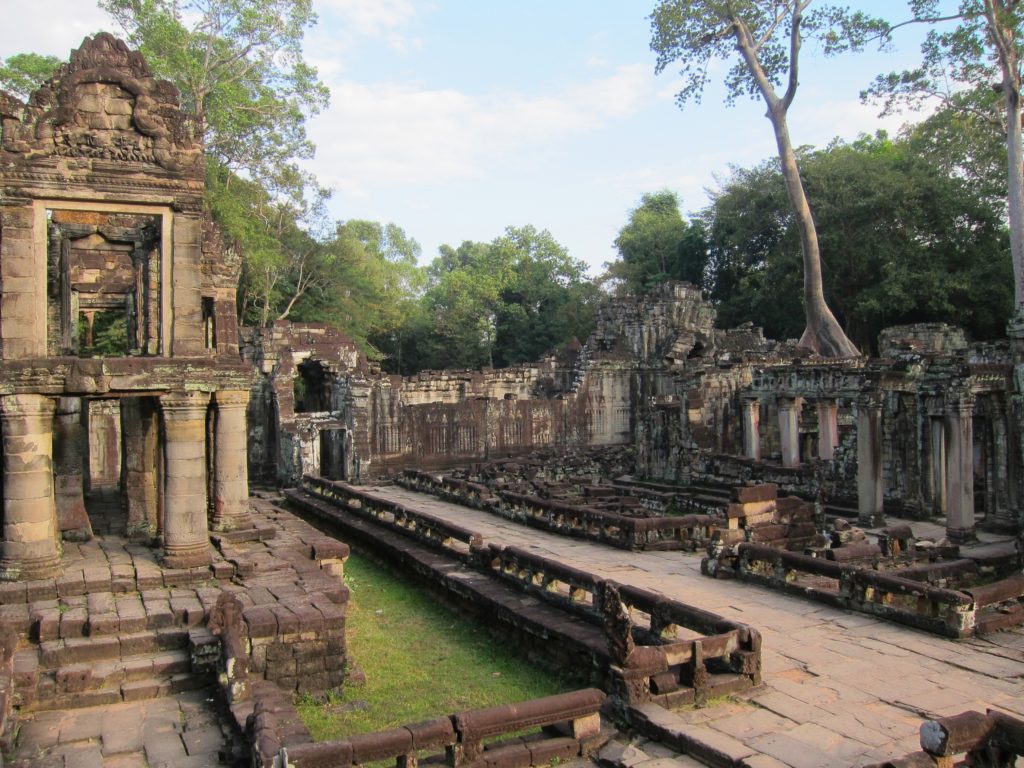
Another ruin-devouring tree.
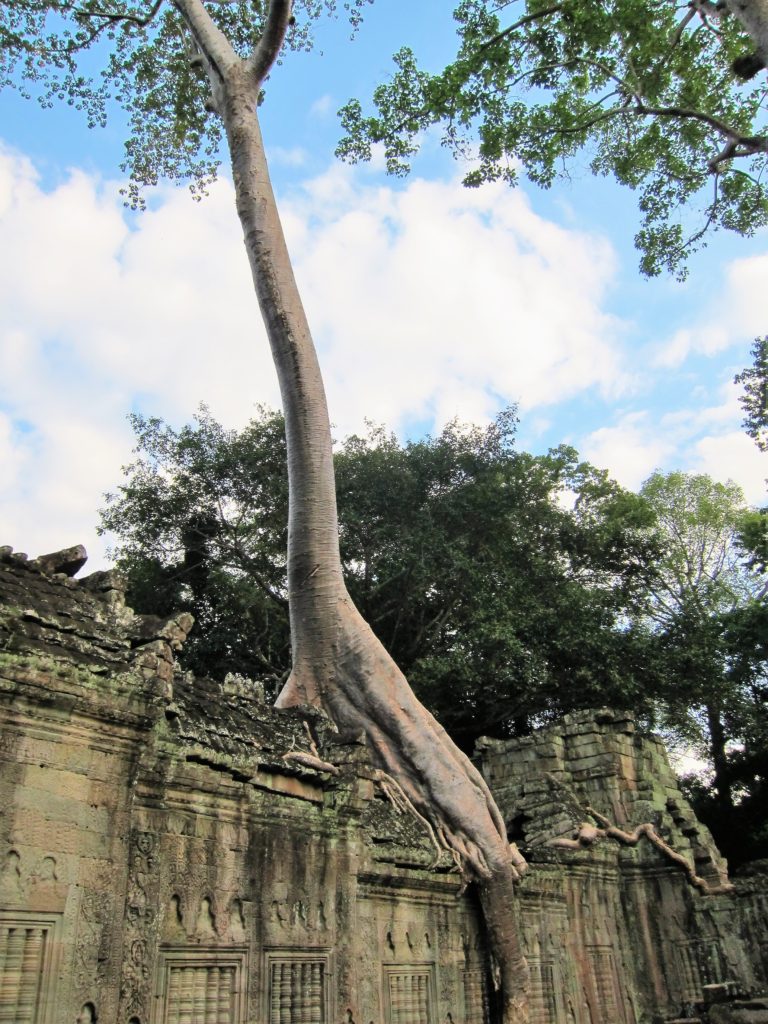
Sight or Insight of the Day – Angkor Wat
(Warning: quasi-philosophical musings follow!)
We are immersed in an ocean of history.
Like a school of small fish halfway to the ocean floor in the middle of the Pacific, we don’t need to be aware of more than the few cubic metres of water in our particular habitat.
People don’t need a knowledge of history to live, or even to thrive. Many people know absolutely none. Others know only what someone else has told them. Some learn just enough to buttress their own particular set of biases and beliefs, then stop.
But overarching all of these is a sort of uber-history: what has undeniably been, manifested in concrete form, unchangeable by the fairy tales and agenda-driven propaganda of history-as-an-identity-crutch.
Angkor Wat is like that – it’s overwhelming in its HERE-ness, the product of a million minds and hands from people long dead. Many things have changed in the intervening centuries, but Angkor Wat remains to boggle the mind. (Well, my mind anyway.)
</quasi-philosophical musings>
